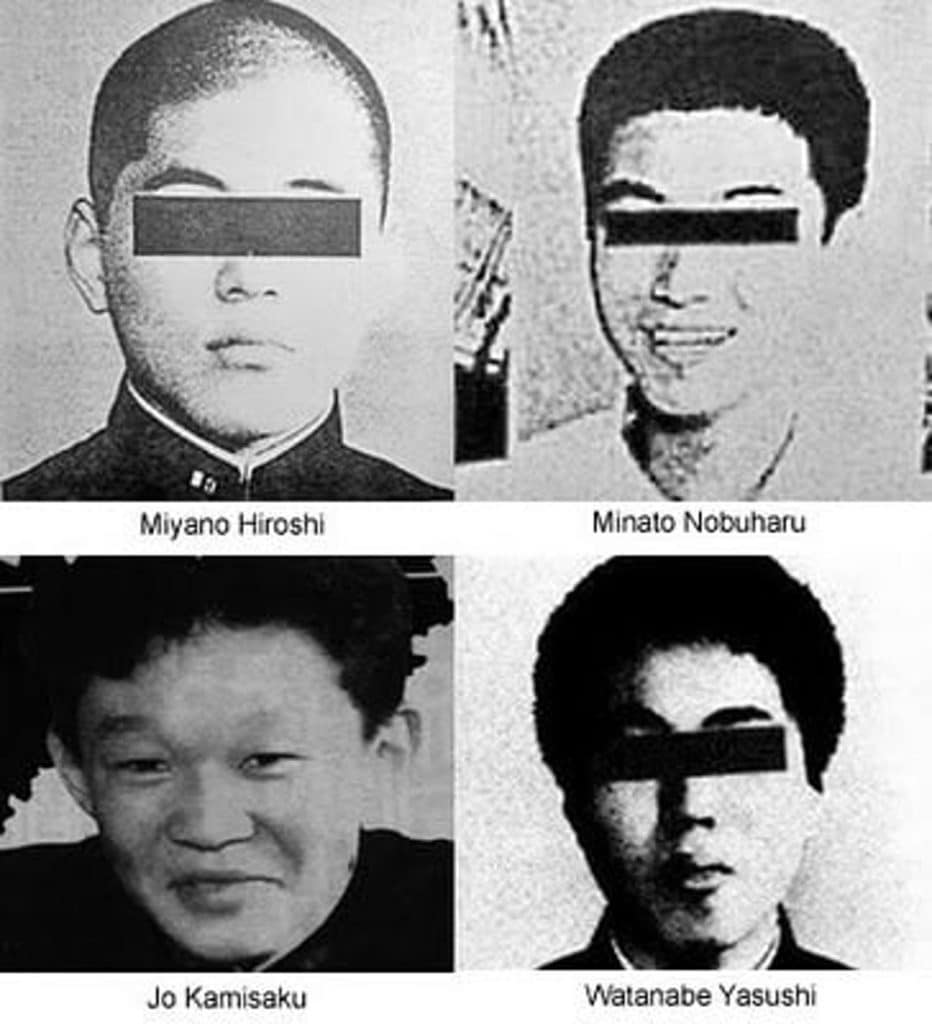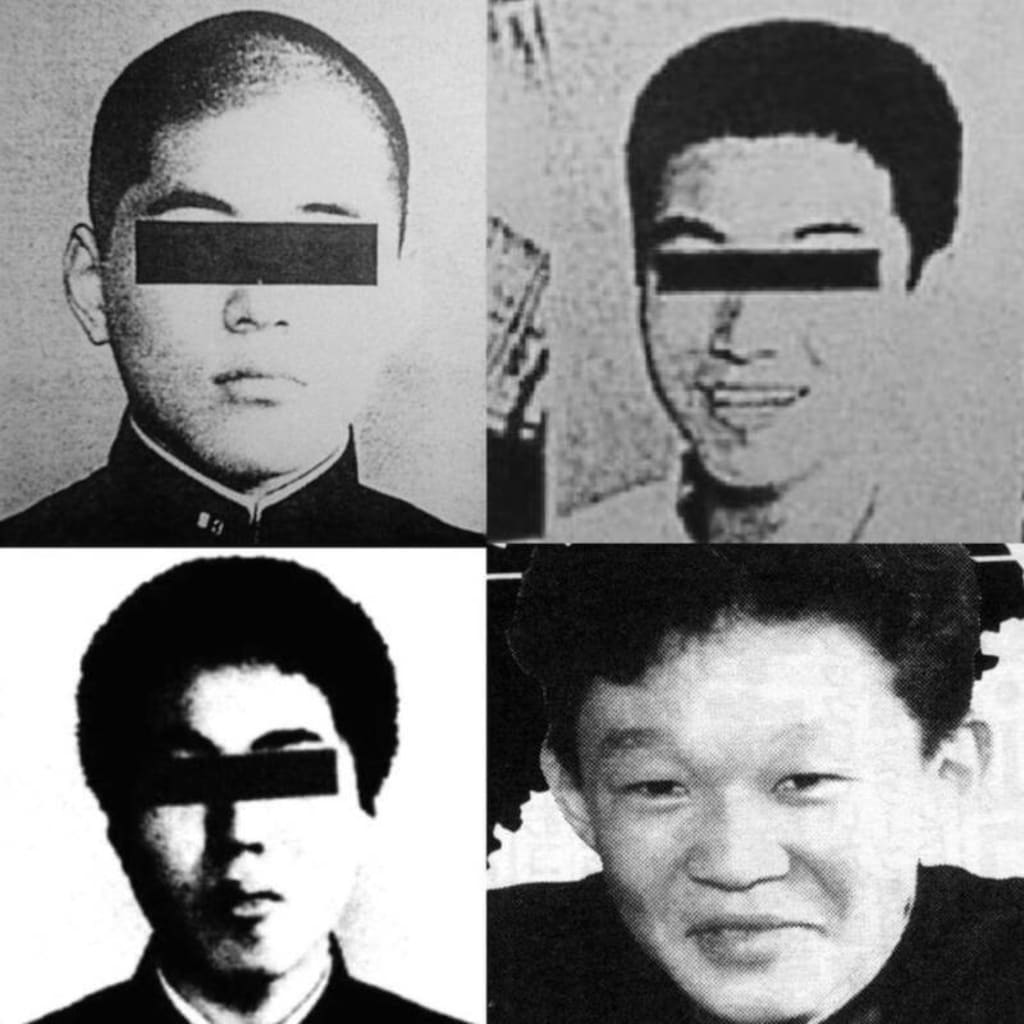Junko Furuta Case: What You Need To Know & Latest Updates
Can a society truly claim justice when its laws fail to protect the most vulnerable? The harrowing case of Junko Furuta, a Japanese high school student, stands as a chilling testament to the devastating consequences of unchecked violence and the shortcomings of a system meant to uphold the law.
The story, often referred to as the "Concrete Encased Murder" or "44 Days of Hell," began in Misato, Saitama Prefecture, Japan, where Junko Furuta was born on January 18, 1971. She lived with her parents, an older brother, and a younger brother. Her life, seemingly ordinary, was brutally interrupted in the late 1980s, leading to one of the most disturbing and horrific crimes in Japanese history. On November 25, 1988, as she was cycling home from work, Furuta's life took a turn towards unimaginable horror.
The perpetrators, a group of four male teenagers Hiroshi Miyano, Shinji Minato, Jo Ogura, and Yasushi Watanabe initiated a plan of kidnapping, sexual assault, torture, and ultimately, murder, against the young girl. The DNA evidence found in her body proved that more people were involved in the atrocities than initially admitted by the four boys. This horrendous ordeal would last for 44 agonizing days, from November 25, 1988, to January 4, 1989.
- Where To Watch Bollywood Movies Online Your Ultimate Guide
- Bollywood More Where To Watch Download Movies Online
The investigation led to the eventual arrest of the suspects, but the details that emerged during the case were horrifying. The police found the drum containing Junko's remains. The physical and psychological torture inflicted upon Furuta was unspeakable, including repeated rape, beatings, burns, and other forms of abuse. The specifics of her captivity were a nightmare. The young girl was held captive in a residence in the Ayase area of Adachi Ward. The cruelty reached a level of depravity that is difficult to comprehend, where Junko had to pretend to be the girlfriend of one of her tormentors in front of his parents.
The brutality of the crime shook the nation and the world. The international media picked up the case, as Junko Furuta's torture and murder sparked international outrage. It served as a grim reminder of the depths of human depravity and the vulnerability of individuals in the face of evil. The case continues to be a source of controversy, as many feel the sentences handed down to the perpetrators were insufficient given the severity of the crimes.
| Category | Details |
|---|---|
| Full Name | Furuta Junko () |
| Date of Birth | January 18, 1971 |
| Place of Birth | Misato, Saitama Prefecture, Japan |
| Education | High School Student |
| Family | Parents, one older brother, and one younger brother |
| Known For | Victim of the "Concrete Encased Murder," a crime that involved kidnapping, torture, sexual assault, and murder |
| Criminal Case Dates | November 25, 1988 January 4, 1989 (44 days of captivity) |
| Perpetrators | Hiroshi Miyano, Shinji Minato, Jo Ogura, and Yasushi Watanabe |
| Sentence | Hiroshi Miyano: 20 years. Shinji Minato, Jo Ogura, Yasushi Watanabe: Sentenced as juveniles. Minato and Ogura received 17 years. Watanabe got 10 years. |
| Aftermath | The case sparked international outrage and has inspired films and manga. The case highlighted issues of bullying, torture, and justice. |
| Additional Information | The crime is often referred to as the "Concrete Encased Murder" or "44 Days of Hell." The case has been the subject of much discussion, analysis, and debate regarding the justice system, social issues, and the severity of violence. |
| Reference | Wikipedia - Murder of Junko Furuta |
One of the most disturbing aspects of the case was the revelation of how the perpetrators operated and the attitudes of those around them. Miyano initiated the attack on Furuta, then approached her, feigning concern and offering to help, effectively luring her into a trap. Minato was involved in the initial assault, kicking her off her bike under Miyano's orders. The brother of one of the perpetrators, who was told about the crime by his sibling to brag, informed the parents, who then contacted the police, further highlighting the normalization of violence and the complicity of those who knew about the crimes but did not act to prevent them sooner.
- Emily Compagnos New Chapter Engagement Career 2024 Updates
- Hdhub4u Is It Safe To Watch Free Movies Risks Alternatives
In the aftermath of the horrific events, the question of "Where are the killers of Junko Furuta now?" looms large. The four perpetrators were eventually released from prison. Watanabe is the only one who has not reoffended since his release. However, the whereabouts of the other killers remain largely unknown, adding another layer of complexity and unresolved feelings to this already tragic story. In 2018, Shinji Minato, now known as one of the convicts, allegedly assaulted a company employee, further raising questions about rehabilitation and the justice system's capacity to protect society.
The case inspired a film directed by Katsuya Matsumura, starring Yujin Kitagawa, and a manga illustrated by Kamata Youji, which brought the grim details to a wider audience, sparking discussion about the case. The film and manga served as a stark reminder of the horrors inflicted upon the victim and the importance of advocacy for victims of violence. Despite the passage of time and the media coverage surrounding the case, the memory of Junko Furuta's suffering continues to haunt those who are aware of the case. Her story is a somber reminder of the importance of upholding justice and protecting the rights of the most vulnerable.
The media has played a significant role in keeping the case in the public eye. Several online platforms discuss the events, with some including #junkofuruta #truecrime #japan. These discussions also bring up social issues. Discussions cover true crime, current events, and internet media. These conversations keep the events of the case alive, and also serve as a platform for remembrance and discussion on the topics of justice and violence.
The brutal murder tested the limits of the Japanese justice system and continues to be remembered as a reminder of the brutality inflicted on some young people and the importance of advocacy for victims of violence. Furuta, who loved to bake sweets and was planning on helping her mother bake a cake for Christmas, had her life stolen by her attackers. Her tragic story remains one of the most disturbing criminal cases in Japan, highlighting the horrors of bullying, torture, and the challenges of the justice system. The case of Junko Furuta is a somber reminder of the importance of compassion, and of fighting for the safety and dignity of everyone.
Article Recommendations



Detail Author:
- Name : Sheila Keeling
- Username : pacocha.samara
- Email : zachary.renner@sauer.com
- Birthdate : 1991-11-17
- Address : 2051 Filomena Divide Apt. 475 Corbintown, FL 51440-3050
- Phone : (810) 756-4942
- Company : Carroll, Heidenreich and Wyman
- Job : Segmental Paver
- Bio : Suscipit reprehenderit soluta veritatis. Consectetur dolorem totam nobis. Quidem et natus doloremque expedita.
Socials
linkedin:
- url : https://linkedin.com/in/ahauck
- username : ahauck
- bio : Voluptas eum accusantium aliquid.
- followers : 6326
- following : 1815
instagram:
- url : https://instagram.com/anika_id
- username : anika_id
- bio : Cum et doloribus debitis voluptatem. Iusto sit omnis praesentium tempora.
- followers : 5894
- following : 1886
facebook:
- url : https://facebook.com/anika_hauck
- username : anika_hauck
- bio : Qui eius in laboriosam repellendus quod.
- followers : 6789
- following : 1828